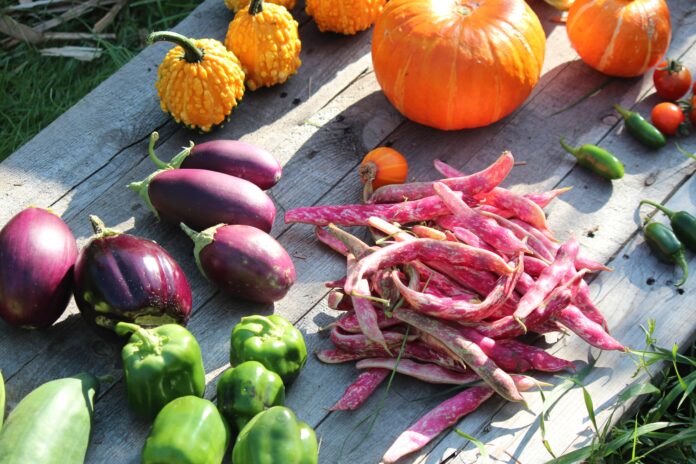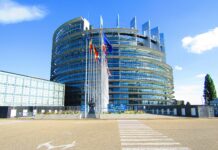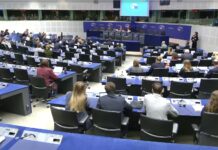Food and agriculture in the EU
Brussels is loud from the debates around the Nature Restoration Law these weeks and there is more to come: the European Commission just published another piece on Healthy Soils and works on a law for Sustainable Food Systems. It sounds technical, but all of these touch on one of the most fundamental elements of human culture: the food we eat.
Laudato Si’, the second encyclical letter of Pope Francis, calls for an integral approach to ecological problems: social, economic and environmental concerns should be treated as one. We cannot create solutions to environmental problems that tackle ecological crises but ignore the right of the poor, marginalised, and future generations to thrive.
The Common Agricultural Policy (CAP) is the largest spending programme of the EU and its goals are providing food, supporting rural development, and protecting biodiversity. Unfortunately, the CAP generally overlooks the third goal by incentivizing an increasingly intensive food production regime that provides cheap food in abundance and puts increasing pressure on natural resources. Currently, about 40% of the total land area of the EU is agricultural land, in some member states this is much higher. Much of this area is regularly ploughed and treated with fertilisers, pesticides, insecticides, and fungicides resulting in a drastic decrease in biodiversity across the continent. Current agricultural practices also cause water scarcity and water pollution further complicating the ecological challenges. The most significant problem with food production is that we simply take away too much space from nature.
If agricultural methods in the EU remain unchanged, biodiversity collapse will continue and may accelerate. Moreover, food systems are also highly vulnerable to climate change- as the droughts in last year have already shown in all EU countries. As global warming continues, these problems will continue to worsen.
Mitigating the aforementioned risks requires the use of less chemicals, less land and various other practices that make the remaining (and still significant) farming more climate-resilient and more biodiversity-friendly.
This proposal seems to suggest that in order to save biodiversity we need to reduce food production. Is this an acceptable proposal? This question is at the centre of the current debate.
Reduced supply is supposed to drive up prices or force us to depend on food imports, causing potentially more harm to biodiversity elsewhere on the planet. In reality, the picture is more complicated, and almost the opposite is true.
The future of food systems
In the following paragraphs, we introduce four key factors that should be at the centre of our thinking when we envision the future of food systems.
- In the EU a significant area of agricultural land is used to produce biofuels. These are crops that are processed to provide supposedly sustainable alternatives to fossil fuels. It was shown however that this form of energy production is highly inefficient, creates significant greenhouse gas emissions through land use, and wastes fertile land that could provide food or be rewilded – just to produce plants to be burned. Rewilding these areas would be a serious step towards protecting biodiversity with no implications on the food market.
- To offer a friendly environment for farmland biodiversity, often we do not have to abandon farming entirely, it would be enough to use different methods and different crops – with different farming philosophies. Shifting from monoculture-based farming to agroecology would create more wildlife-friendly farmland and many other benefits – including better quality of life for farmers themselves. Agroecology is more complicated to operate than large-scale industrial farming. It is less easy to automate and requires more knowledge, which is a challenge. This is still a long-term opportunity to create large numbers of rural livelihoods, especially among those people who currently face a tough job market.
- The EU currently wastes about 20% of its food. More food is wasted than imported. Again, this point shows in itself that giving back significant land area to nature should be manageable. About half of the food waste is generated by households and another half higher in the supply chain. Reducing food waste reduces demand for agricultural production.
- Diets matter. Even if you cannot imagine yourself becoming a vegetarian, just halving your meat consumption would have a significant positive impact on how much land is required to produce your food. To show two extremes: a kg of apples can be grown on 0,63m2 whereas a kg of lamb requires 369,8m2. Meat is produced by feeding animals with plants, but the transformation to meat is not efficient. Much more land is needed to produce the same amount of meat than plants. Beyond land use, animal farming (especially beef and lamb) produce significant amounts of additional greenhouse gases. Changing your diet is likely the most impactful individual choice you can make to curb climate change. Unfortunately, this choice is not entirely personal – prices, access to alternatives, retailer strategies, and information available have a strong influence on consumer choices.
Creating a more biodiversity-friendly agricultural sector is not just for its aesthetic or symbolic value. Of course, a wide range of benefits are provided by nature, let’s concentrate on two of these:
- Industrial croplands are net greenhouse gas emitters in themselves. Changing to agroecology would reduce these emissions significantly, and might even create a carbon-negative farming.
- Better biodiversity, healthier soils and a wider variety of crops together have a much better water-retention capacity, a key source of climate resilience in agriculture.
Transforming our agricultural systems to be more sustainable would therefore cause no shortage of food. If we transformed our standard diets to more plant-based selections, having more vegetables and legumes, we would need to produce much less fodder for animals, and the average price of food for European consumers may go down considerably. These diets would also be more healthy.
Transforming the food system is more than just a policy challenge. The EU and member states should create better regulations. Together with our allies, we advocate for such laws to help all European citizens to make easier and better choices. But cultural change is not just politics. In our institutions, communities, events, and family celebrations – we can spread the culture of sustainable gastronomy. This is an important way of doing peaceful, friendly advocacy every day: looking for better sources of food and creating delicious, healthy, sustainable dishes. Citizens hungry for better food may change the political tide.
JESC focus on this topic
In the light of this important ongoing policy debate, JESC started working on the sustainability of food systems longer term. Driven by the call of Laudato Si’ for an integral approach in “caring for our common home,” we would like to see and work for an ambitious Nature Restoration Law, Soil Health Directive, and Sustainable Food Systems Law, as well as for other pieces of legislation that put a sustainable way of farming and eating into place.
With this in mind, JESC is trying to know more about other faith-based groups who care about social, economic or environmental aspects of food production and consumption. The goal is to see if future collaborations and joint initiatives and projects are possible. These faith-based organisations are not required to have a specific interest in EU policies. They can be dioceses, religious orders and communities, associations, foundations, academic faculties, parishes, social movements, schools, and youth groups. They can do one or more of the following activities: advocacy, awareness raising, theoretical/analytical work, and education, as well as focus on any of the following topics: food policy, sustainable diets, agriculture, sustainable rural development, nature conservation (biodiversity), water, and social aspects of food production/consumption. We’re also looking for faith-based organisations that manage land.
If your organisation is engaged around any of these activities, and/or if you know of other faith-based organisations which are, please contact us by writing to Béla Kuslits (at bela.kuslits@jesc.eu), JESC Ecology Officer and manager of this process.
Many thanks!





